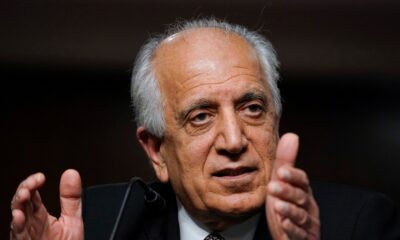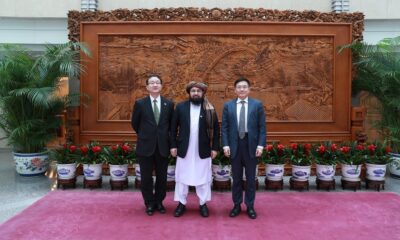Business
SIGAR issues pessimistic economic forecast for Afghanistan
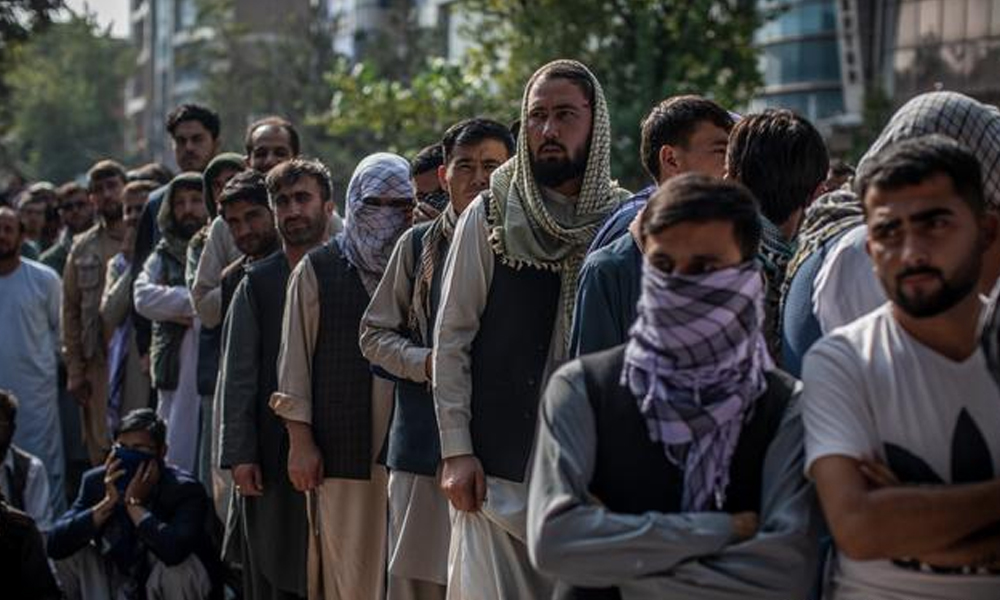
Afghanistan’s economy suffered severe contraction in 2021, with the UN Development Programme (UNDP) and IMF estimating up to a 20–30 percent drop, the US Special Inspector General for Afghanistan Reconstruction (SIGAR) reported.
According to SIGAR’s latest report, annual per capita income is estimated to have fallen from $650 in 2012, to $500 in 2020, and is expected to drop to $350 by 2022.
SIGAR stated that male unemployment in Afghanistan may nearly double from 15.2 percent in 2019 to 29 percent by 2022.
“In the worst-case scenario modeled by the Asian Development Bank, unemployment could increase by more than 40 percent in the short run and household consumption could contract by 44 percent,” read the report.
The devaluation of the afghani has also impacted the Afghan economy and further diminished Afghan households’ ability to purchase food and
other necessary items, because much foreign trade was settled in US dollars.
Since August last year, the afghani has depreciated against the US dollar, from approximately 77 afghani to the dollar to around 105 as of January
2, 2022.
SIGAR also reported that adding to the pressure on the country’s limited cash reserves, Afghanistan lacks the technical capabilities to print its own currency.
According to SIGAR, the IEA has not yet secured or developed a domestic printing source for afghani banknotes.
SIGAR reported that Afghanistan’s largely cash-based economy has continued to struggle with an acute cash shortage since November, which has limited day-to-day economic activities.
“Banks are at the center of a liquidity crisis, with lost access to international financing and depositors attempting to recover their funds,” read the report.
According to a UNDP report, Afghanistan’s banking system is in “existential crisis.” Total deposits had fallen to the equivalent of $2 billion as of
September 2021 from $2.8 billion the month.
As the Afghan economy has struggled to find areas of sustainable economic growth in recent years, the country has increasingly relied on remittances from Afghans working abroad, especially in neighboring Iran.
By 2019, remittances accounted for the equivalent of 4.3 percent of Afghanistan’s annual GDP, an increase from 1.2 percent in 2014, according to World Bank data.
However, officials from the UN’s International Organization for Migration estimate this figure could have been as high as 15–20 percent, given that many remittances are sent through the informal hawala money-transfer system.
According to officials at Médecins Sans Frontières, with the absence of a functioning banking sector, many NGOs have also been forced to rely on
hawalas to pay expenses within Afghanistan.
In November 2021, the IEA announced a complete ban on the use of foreign currency in Afghanistan, interfering with remittance activities and
worsening the country’s liquidity crisis.
However, SIGAR reported that indicators suggest that the currency ban is not being actively enforced against the US dollar, which continues to be widely used in Afghan markets.
Business
Afghanistan seeks expanded ties with Russia in energy, mining and infrastructure
TASS reported that Kabul is also prepared to cooperate with Moscow in the extraction of mineral resources.

Afghanistan has expressed strong interest in broadening trade and economic cooperation with Russia, with a particular focus on energy, mining and infrastructure projects, according to Russia’s TASS news agency.
In an interview with TASS, Afghanistan’s Ambassador to Moscow, Gul Hassan, said Kabul is keen to import oil and gas from Russia as part of efforts to deepen bilateral economic ties.
He noted that trade relations between the two countries are progressing and that, if key obstacles—especially banking restrictions—are addressed, Afghanistan could also import medicines, industrial goods, grain, vegetable oils and other commodities from Russia.
In return, the ambassador said Afghanistan is ready to export fresh and dried fruits, vegetables, medicinal plants, carpets and mineral resources to the Russian market, adding that expanding export-import operations could significantly increase bilateral trade volumes.
He also revealed plans to open an exhibition of Afghan products in Moscow, which he said would help boost trade turnover.
TASS reported that Kabul is also prepared to cooperate with Moscow in the extraction of mineral resources.
Hassan described the economy as a central pillar of Afghanistan’s foreign policy, emphasizing the government’s goal of positioning the country as a key link in regional economic integration and attracting foreign investment.
He noted that Russian companies have long shown interest in Afghanistan’s industrial, mining and infrastructure sectors.
The ambassador further told TASS that Russian firms are already in talks with relevant Afghan authorities on the construction of small hydroelectric power plants.
Representatives of several Russian companies have reportedly visited Afghanistan and held meetings with officials and technical experts.
According to Hassan, practical steps toward cooperation in the energy and power generation sectors are expected in the near future, pointing to a potential new phase in Afghan-Russian economic relations.
Business
Pakistan, China plan to extend CPEC to Afghanistan, revive trilateral framework
The proposed CPEC expansion into Afghanistan is seen as a move to enhance regional economic integration amid shifting geopolitical dynamics.
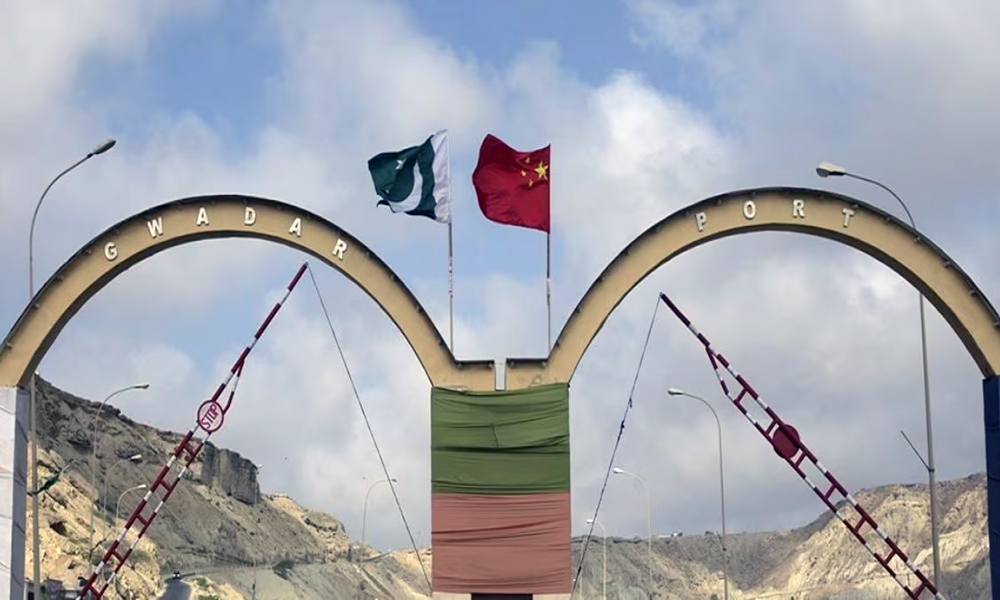
Pakistan and China are moving forward with plans to extend the China-Pakistan Economic Corridor (CPEC) into Afghanistan, a strategic step aimed at bolstering regional connectivity and economic cooperation. The expansion, along with the revival of the Pakistan-China-Afghanistan trilateral framework, was discussed in a recent briefing to the Pakistani Senate Standing Committee on Foreign Affairs.
According to Pakistan Today, officials from Pakistan’s Ministry of Foreign Affairs outlined the details during a session in Islamabad, where they reviewed key aspects of Pakistan’s foreign relations, regional developments, and economic diplomacy.
Officials emphasized that Pakistan’s relationship with China remains strong, underscoring the “all-weather” strategic partnership between the two nations. Strengthening ties with Beijing, they stated, continues to be a cornerstone of Pakistan’s foreign policy. This includes unwavering support for China’s position on regional and international issues, particularly the One-China policy and matters related to territorial integrity.
The briefing also touched upon China’s consistent backing of Pakistan in various areas, including sovereignty, economic stability, counter-terrorism, and support for Pakistan’s exit from the Financial Action Task Force (FATF) grey list.
The Kashmir issue was also addressed, with officials noting that China considers it an unresolved matter and advocates for a peaceful resolution in line with UN Security Council resolutions.
The proposed CPEC expansion into Afghanistan is seen as a move to enhance regional economic integration amid shifting geopolitical dynamics. Officials stated that reviving the trilateral framework is part of broader efforts to foster greater cooperation and connectivity in the region, with an eye on long-term stability and prosperity.
The move also reflects both countries’ desire to further integrate Afghanistan into the regional economic landscape, a key element in fostering peace and development.
Business
Uzbekistan–Afghanistan trade rises to $1.6 billion in 2025
Trade relations remain largely export-driven, with Uzbekistan supplying Afghanistan primarily with food products, energy resources, and industrial goods.
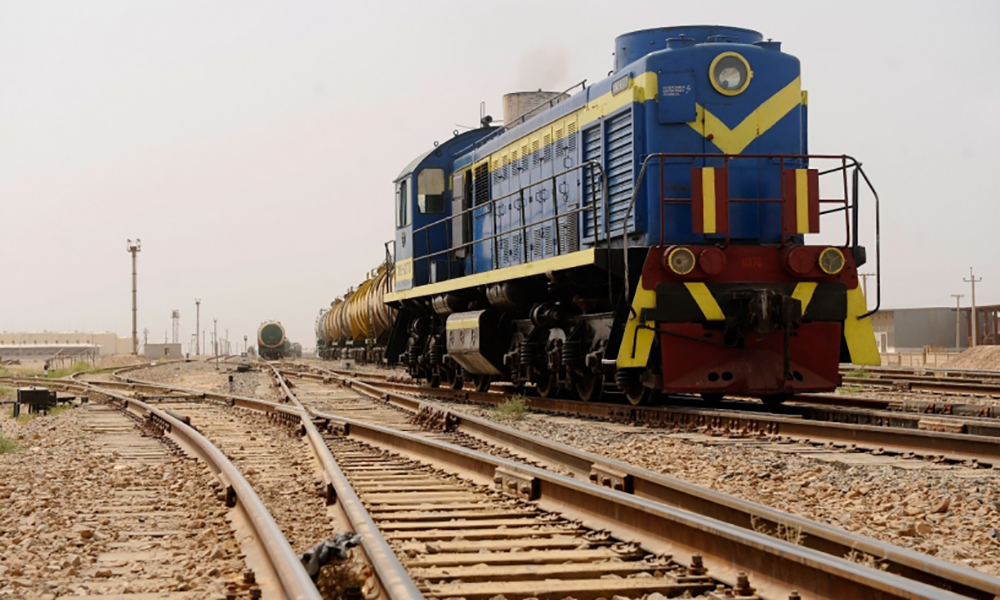
Trade between Uzbekistan and Afghanistan rose sharply in 2025, reaching $1.6 billion, according to official data released by Uzbekistan’s National Statistics Committee.
The figure represents a 45.5 percent increase from $1.1 billion in 2024 and an 84.4 percent rise compared with 2023, when bilateral trade stood at $867.5 million, highlighting rapid growth in economic exchanges between the two countries.
Uzbekistan’s exports to Afghanistan accounted for the vast majority of the trade volume, totaling $1.5 billion, or 93.8 percent of overall bilateral turnover. Trade relations remain largely export-driven, with Uzbekistan supplying Afghanistan primarily with food products, energy resources, and industrial goods.
The surge in trade comes as Uzbekistan’s total foreign trade turnover reached $81.2 billion in 2025, reflecting broader efforts to expand and diversify external economic ties. By the end of the reporting period, Uzbekistan maintained trade relations with 210 countries.
China remained Uzbekistan’s largest trading partner, accounting for 21.2 percent of total trade, followed by Russia (16.0 percent), Kazakhstan (6.1 percent), Türkiye (3.7 percent), and the Republic of Korea (2.1 percent).
The latest figures underscore strengthening economic ties between Uzbekistan and Afghanistan amid efforts to boost regional trade and connectivity.
-

 Sport4 days ago
Sport4 days agoAFC Futsal Asian Cup 2026: Final eight confirmed
-

 Sport4 days ago
Sport4 days agoAfghanistan in new kit for T20 World Cup warm-up against Scotland
-

 Sport5 days ago
Sport5 days agoIran see off spirited Afghanistan to finish top of Group D
-

 Sport3 days ago
Sport3 days agoJapan trumps Afghanistan 6-0 in AFC Futsal Asian Cup quarter-final
-

 Sport2 days ago
Sport2 days agoHosts and heavyweights advance as AFC Futsal Asian Cup reaches semifinals
-

 International Sports4 days ago
International Sports4 days agoPakistan to boycott T20 World Cup group match against India
-
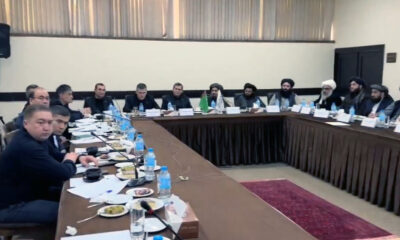
 Latest News5 days ago
Latest News5 days agoAfghanistan, Turkmenistan discuss TAPI, rail and power projects in Herat meeting
-

 Sport4 days ago
Sport4 days agoAfghanistan crush Scotland in ICC T20 World Cup warm-up


